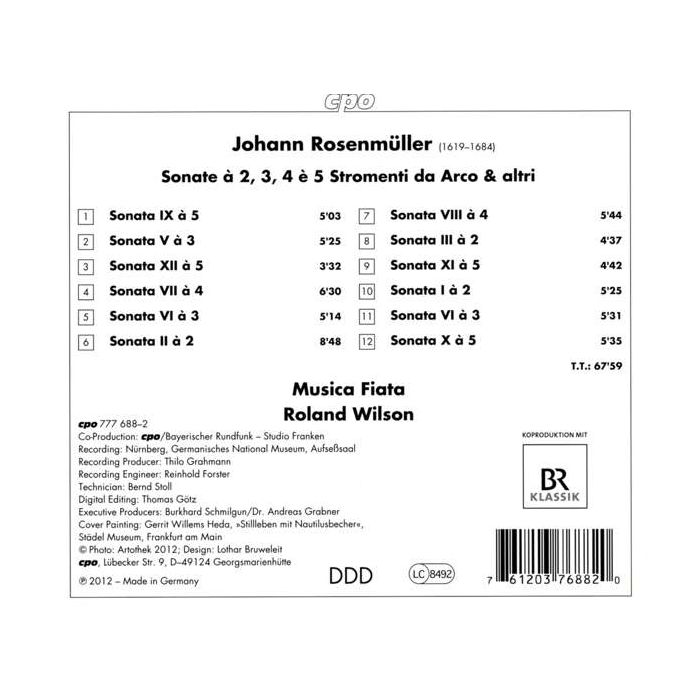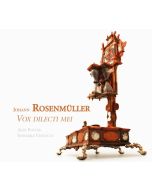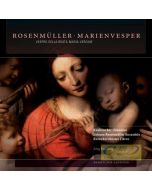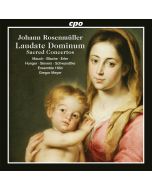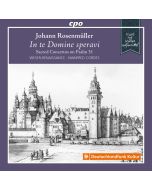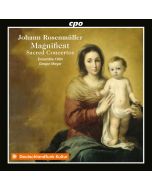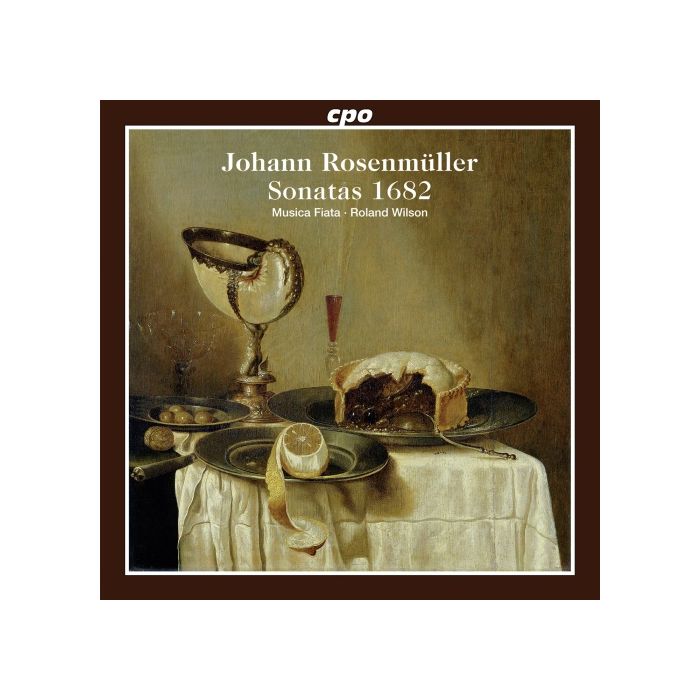
(Produkt nie został jeszcze oceniony)
kompozytor
Rosenmüller, Johann
tytuł
Rosenmüller: Sonatas (Norimberga 1682)
wykonawcy
Musica Fiata, Wilson, Roland
nr katalogowy
CPO 777 688-2
opis
The sonatas of Johann Rosenmüller recorded by Musica Fiata again underscore his importance as a major composer between Schütz and Bach. This towering German figure of the European Baroque not only found remarkably broad acceptance (and thus widespread dissemination) for his exuberant music, he was also surprisingly cherished and performed long after his death in 1684. Little is known about his life. He was presumably born in or near Oelsnitz in the Vogtland region of Germany on 24 August 1617. From 1642 he worked at St. Thomas's in Leipzig, becoming a baccalaureus funerum there in 1650 while serving as organist at the Nikolaikirche from 1651. After a long stay in Italy he was appointed maestro di cappella to Duke Anton Ulrich of Brunswick-Wolfenbüttel. He was buried in Wolfenbüttel on 12 September 1684. His 1682 sonatas, though published after his return to Germany, clearly show the fruits of the nearly twenty-five years he spent in Venice. To quote the scholar Peter Wollny, "The style he developed at the end of his Leipzig activities took on important new dimensions and almost classical maturity through his many years in Italy. Thanks to his great fame and good connections to German courts, Rosenmüller's music had a truly formative stylistic impact on German music."
nośnik
CD x 1
wydawca
CPO
data wydania
25.10.2012
EAN / kod kreskowy
761203768820
38,00 zł
Produkt na zamówienie
Wysyłka ustalana indywidualnie.
Darmowa wysyłka dla zamówień powyżej 300 zł!
Darmowy kurier dla zamówień powyżej 500 zł!
sprawdź koszty wysyłki